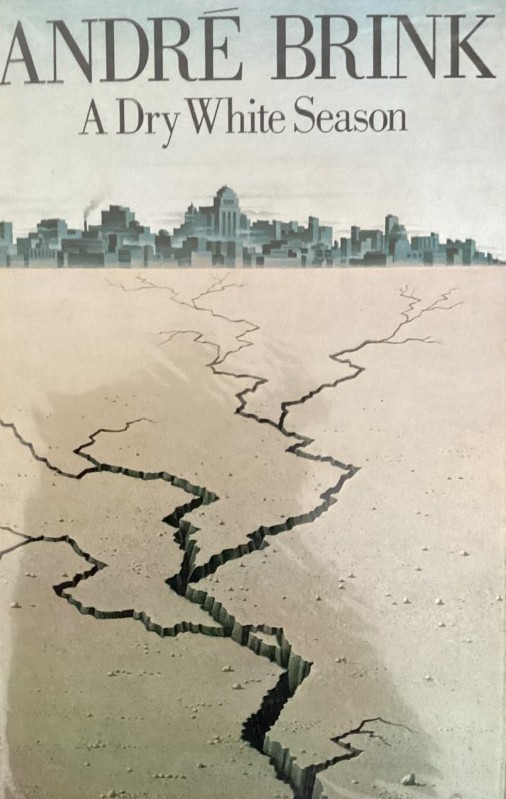Inspiring Older Readers
 posted on 17 Jul 2024
posted on 17 Jul 2024
A Dry White Season by André Brink
André Brink (1935-2015), a South African novelist who wrote in Afrikaans as well as English, belonged to a wider group of writers who labelled themselves as ‘Die Sestigers’ – a dissident collective of intellectuals who opposed the Apartheid regime and tried to expose the insular White South Africans to wider world literature and to expose the white supremacist messages that dominated the Government rhetoric.
Published in 1979, A Dry White Season (which went on to win The Martin Luther King Memorial Prize) might seem like something of an historical – even didactically redundant - novel now that it’s thirty years or more since the fall of the Apartheid system but that would be a mistake. This is a novel as relevant now as it ever was because its subject matter is the way any oppressive state works to keep its majority populations cowed and its minorities in perpetual (and wholly justifiable) fear for their lives.
At the heart of the book is the figure of Ben du Toit, an unassuming, ordinary, white, slightly disappointed teacher who finds himself drawn into the world of the South African secret police and is ultimately killed by them while in detention. This isn’t, as it might seem, a spoiler because this is actually information we’re given right at the outset when the unnamed narrator of Ben’s story (an old school friend who is now a successful novelist) tells us he’s been given a file of papers about what Ben has been involved in and the rest of the book pieces together what has happened to his erstwhile friend.
We soon discover that Ben is a man who believes that the world is – or should be – properly ordered and morally reliable. These qualities he assumes will always be underpinned by the notion of justice and the rule of law. He takes an interest in the Black school janitor – Gordon Ngubene – and his family and when Gordon’s son finds himself caught up in the Soweto uprising and disappears, the janitor turns to Ben for help. This is the start of his journey into the dark underbelly of Apartheid policing.
Ben’s belief that, as a White man, the law will protect and justify his enquires becomes more and more tenuous as he meets with increasingly sinister members of the police. Their warnings to him gradually become less coded and it becomes clear that he’s becoming seen as part of the ‘enemy’. A photograph of Ben embracing Gordon’s grieving wife goes viral in the press and the wider white community (including his wife and children) begin to turn on him.
Ben’s community becomes other dissenters and some black activists – especially Stanley Makhaya, a taxi driver and all round fixer, who introduces Ben to the reality of Soweto. Eventually Ben finds himself the focal point for other Black residents who have grievances and his work to help them ends up making him a prime target for the secret police.
Ultimately the idea that his Whiteness and belief in law and justice will protect him is shown to be the myth it is. In a State that will do anything to protect its prime position, no-one is safe from the tentacles of the secret police.
There are, inevitably, echoes of Orwell here and that only further underpins the fact that this is an ‘Apartheid novel’ but a novel about State oppression that is, sadly, as true now as it has ever been.
Paperback copies are easy to find and cheap. The first edition was (slightly unexpectedly) published by W. H. Allen and, to be honest, wasn’t the greatest production ever and the cheap paper browns alarmingly.
Terry Potter
July 2024